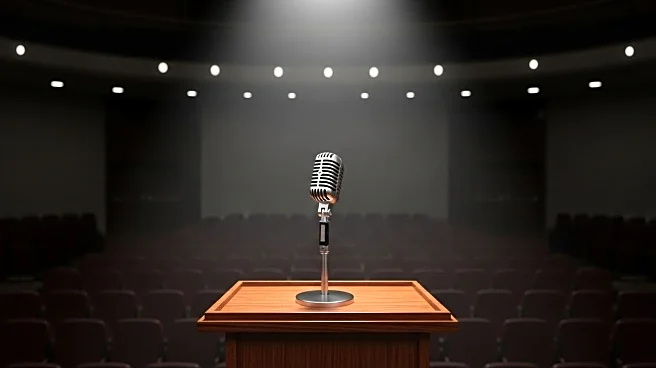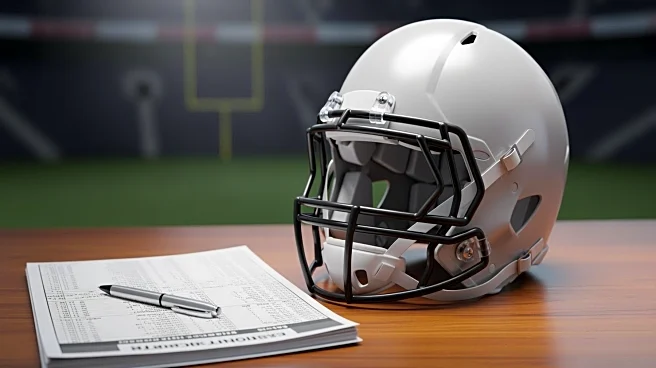What's Happening?
Jimmy Kimmel faced suspension from ABC following a controversial on-air comment regarding the assassination of Charlie Kirk. The incident is part of a broader pattern of government pressure on political comedy, including the cancellation of Stephen Colbert's show after his parent company settled a lawsuit with President Trump. The White House has also criticized 'South Park' for its satirical portrayal of administration figures. These events have thrust comedians into the spotlight, highlighting the tension between free speech and government interference. The suspension of Kimmel, which was reversed after public outcry, has reignited discussions about the role of comedy in political discourse.
Why It's Important?
The suspension of Jimmy Kimmel underscores the precarious balance between entertainment and political influence in the U.S. It raises concerns about government interference in media and the potential chilling effect on free speech. The incident has mobilized artists and public figures to defend the importance of comedic expression as a form of political resistance. The broader implications suggest a shift in how political comedy is perceived, potentially increasing its relevance as a tool for social commentary and critique. This situation highlights the ongoing debate over the limits of free speech and the role of media in shaping public opinion.
What's Next?
Following the reinstatement of Jimmy Kimmel, the focus may shift to how media companies navigate government pressure while maintaining editorial independence. The entertainment industry could see increased advocacy for free speech protections, with potential legal challenges to government actions perceived as censorship. Stakeholders, including media companies and civil rights organizations, may push for clearer guidelines on government interaction with media. The incident could also influence future programming decisions, as networks weigh the risks of political satire against potential backlash. The broader conversation about free speech in comedy is likely to continue, influencing both public policy and cultural norms.
Beyond the Headlines
The controversy surrounding Jimmy Kimmel's suspension highlights deeper issues related to the intersection of politics and entertainment. It raises ethical questions about the role of comedians in political discourse and the responsibilities of media companies in protecting free speech. The incident may prompt a reevaluation of the cultural significance of political comedy, potentially leading to a resurgence in its popularity as a form of resistance. Additionally, it could influence international perceptions of U.S. media freedom, as other countries observe how the U.S. handles government criticism and media independence.









